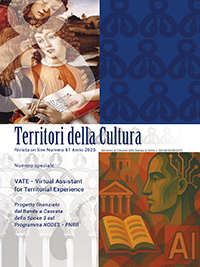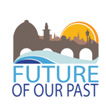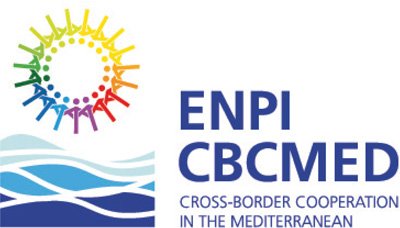Sustainable Tourism in Historic Centres. The Roles of Local Communities. International Conference, Valletta, 13th May 2015
On May 13th 2015, an international conference entitled "Sustainable Tourism in Historic Centres. The Roles of Local Communities" was held in Malta at the Mediterranean Conference Centre of the Maltese capital.
The event is part of the communication initiatives made by the partnership of the "Future of Our Past" project focused on the development of sustainable tourism in historic centers of the Mediterranean region and co-financed by the European Union in the framework of the ENPI CBC MED programme 2007-2013 (project’s total budget is 1.868.764,00€; the amount of the EU contribution is 1.679.291,93€, 90% of total). The conference was opened by the speech of (Malta) Tourism Minister, Edward Zammit Lewis, who highlighted the strategic objective of the Maltese Government of promoting cultural tourism and, consequently, the importance of cultural heritage and, in particular, of the historic centers located in the island.
The Maltese objective – as highlighted by the intervention of Ottavia Ricci, Adviser of the Italian Minister of Culture and Tourism – is not very different from the one leading the Italian Government, also evidenced by the creation of a Ministry that brings together the responsibilities on tourism with those related to cultural heritage.
Ottavia Ricci pointed out that, regardless of its possible forms (cultural, seaside, natural, etc.), in its development, tourism must respect the principles of sustainability and that sustainability itself has become a shared goal of all forces operating in the area.
The subsequent intervention of Franco Salvatori, Emeritus President of the Italian Geographic Society and FOP Project Coordinator, after having thanked the event organizers and the Minister of Tourism, stated how tourism can represent a unique opportunity for the development of the Mediterranean area; however, it is fundamental that this development fully respects the environmental protection environment and local cultures, relying on a more active and informed involvement of local communities.
This topic has been deeply discussed during the first session of the Conference, starting from the introductory intervention of Fabio Pollice (Italian Geographic Society). Professor Pollice, starting from the concept of sustainability, explained the motivations to consider the involvement of local communities as the essential condition for sustainable tourism development of city centers. He explained also what risks the lack of local communities involvement may bring on the cultural heritage conservation itself, which should be the basis of any form of tourist development.
In too many cases the exploitation of historic centers from the biggest - Venice – to the smallest ones – some small towns of Tuscany – has led to cases of gentrification with the expulsion of the resident population and the creation of museums or even the Disneyfication of urban settlement.
Often, as underlined by the intervention of Issam Juha, Director of the Center for Cultural Heritage and Preservation of the Palestinian Authority, the museification and Disneyfication represent the effects of exogenous forms of development that have little territorial impacts and that produce a high land consumption and the progressive local people expulsion.
The recovery of building heritage, as well as the urban requalification are essential elements for a sustainable development of tourism. This is highlighted by the efforts made by the Palestinian Authority in Bethlehem, chosen not by chance by the FOP consortium as the place where to implement the pilot experience of community scattered hotel.
Still on the risks of a "tourism without territory", Paolo Salonia from CNR (Italy) focused his speech on. Starting from the case of Venice itself, he highlighted the unsustainability of such tourism development, leading to commercialization of places. Mass tourism, even when using the "cultural" attribute, can lead to a misrepresentation of places and to jeopardize those identity references, which are the local culture ground and, consequently, of their own tourist attraction capacity.
The marginalization of local people and the mystification of places - both consequences of exogenous models of development and commercialization logics - are phenomena that occur in the whole Mediterranean area. For this reason – as Marcello Scalisi, executive director of UNIMED pointed out – actions at supranational level are necessary, as the one of creating a research network involving all Mediterranean Universities with the aim of raising the awareness among different government levels on the need to promote sustainable development of city centers. At the same time local communities should be supported by promoting forms of self-centered and endogenous development.
UNIMED is leading the objective just described through the Future of Our Past (FOP) initiative, already mentioned above.
Another demonstration of how the cooperation between the universities of the different sides of the Mediterranean can have a strategic role in the development of a sustainable tourism in the historic centers can be found in Fabio Naselli - representative of IEREK - Egyptian partner of the project FOP - and professor of the Kore University of Enna – speech.
In his intervention, Naselli describes the experience of a participative urban regeneration project involving the University of Palermo and the Helwan University in Cairo, dealing with the recovery of their historical centers and, in particular, with the revitalization of the related socio-economic sector.
The first session ended with the testimony of Simon Bozzato of the University of Rome "Tor Vergata", who described the objectives that underline the design and the implementation of FOP project. Bozzato underlined that the Mediterranean scale represents a necessary condition for the project, since it refers to an area of possible collaboration between the coastal countries in a sector, which can and should acquire a strategic role in the Euro-Mediterranean partnership.
The following sessions results interesting, as well, since it proposed a reflection on more operational contents on how to involve local communities in the processes of development of tourism sustainable. The introductory speech held by Kenneth Zammit Tabona, Chairman Valletta and Floriana Rehabilitation Committee and Artistic Director Valletta International Baroque Festival (Malta) is of particular interest. Tabona emphasizes that urban regeneration processes, when inspired only by touristic motivations, generates risks of irreparably harming the historical and cultural identity of the historical centers and could go against the needs of the local community.
Thus, a greater involvement of local communities is required both in urban regeneration projects and in initiatives capable of building or rebuilding the territorial identity of these human settlements.
An example is represented by the experience of Valletta International Baroque Festival, which has been for a few years an event of great cultural significance and tourist attraction.
A different approach is proposed by the report of Marco Cremades Schulz, Director of Academia Britanica, who shows how apparently very distant forms of tourism, from cultural tourism, such as study tourism, take advantage of the presence of a rich cultural heritage and contribute to the success of initiatives to leverage this heritage, following a report of reciprocity rather than dependency.
Still other content has the third report of Iyad Abu Rudeineh, Executive Director of the Joint Service Bethlehem Council for Solid Waste Management (Palestinian Authority). He focuses instead on the issue of waste management, explaining how this issue is not only related to tourism, but also to the development of environmental awareness that is a prerequisite for local communities to promote sustainable development processes.
The following report by Fiorello Primi, President of “Borghi più belli d’Italia”, brings the discussion again back to the collective reflection on the topic of historic centers and their outstanding cultural value. The commitment of the Association “Borghi più belli d’Italia”, is precisely to protect this heritage and to enhance it for tourism purposes, trying to balance the needs of the local community with those arising from the need to adapt the local supply to the tourists demand.
What is significant is that the Association has effectively created a network among Italian small towns that has allowed the development of project synergies, co-marketing actions, good practices sharing and, nevertheless, the diffusion of innovations in tourism with excellent impact for individual villages and for their regions.
Another form of network type synergic interaction is referenced by Sergio Celestino, Mayor of Formello. Formello is a lovely little town not far from Rome, located along the ancient “Via Francigena” from Canterbury pilgrims to Rome. The tourist development of this town is of course linked with the development of the “Via Francigena” as a transnational cultural itinerary and with the possibility of creating a genuine process of networking among public and private actors operating along the route.
In this case as well, the idea is to promote the route as a model of sustainable development and, therefore, to build it around the local communities and for the local communities.
The subsequent intervention of Paul Giuntarelli, Head of the Regional Agency for Tourism of Lazio Region, tends to highlight the human resources as a critical question in the processes of sustainable tourism development of the historic centers and of the territory as a whole.
Without qualified resources there can be no development of tourism and the same goal of sustainability is largely dependent on their capabilities and awareness. This is also why the role of training is critical and in this case it would be essential for closer cooperation between the Mediterranean countries to develop joint and convergent training projects.
In the afternoon the third session, dedicated to the analysis of local community involvement experiences in the process of recovery and tourist development of the historic centers of the Mediterranean (Community Involvement Paths: Experiences from the Mediterranean Basin). It opened with a report by Perit Mireille Fsadni, Head of the Valletta Rehabilitation Project and Manager of Valletta UNESCO World Heritage Site.
In his speech, after a brief historical urban evolution of the capital and its immediate geographical surroundings, Fsadni explained the urban renewal plan that affected Valletta - the first site in the world to be included in the list of UNESCO World Heritage - focusing on the most significant aspects of the plan and its objectives.
This intervention was followed by one of the Palestinian Sami Khoury (Shepherd's Tour - Visit Palestine) that highlighted the difficulties of the tourism planning in the Palestinian territories, due to its extreme fragmentation of Israeli control, actually preventing in large part of the territories the development of tourism activities
Other issues are represented by the excessive concentration of tourist flows (first cause o f unsustainability of the current tourism development) and the economic benefits that are estimated to be equal to just 20% of tourist spending. Good development opportunities for the historic centers of Palestine may come from the cultural routes development, both for promoting the redistribution of tourist flows and the economic benefits linked to them, and for a widespread appreciation of the immense cultural heritage of this region.
Following the intervention of Rafael San Miguel Manzanares, Director of Finca el Capricho ", who focuses instead on the strategy to develop tourism in the city of Cordoba and its wonderful historic center. Here too it is highlighted how critical the role of planning in the development of sustainable tourism: tourism "capable of reconciling the requirements culture environment protection with those related to increasing and qualifying the tourist flows”.
A completely different experience was described by Laura Battagliese, representative of the City of Morigerati in the Cilento National Park (Italy). Her intervention is related to the scattered hotel implemented in this charming town of Cilento. A structure that provides the local community involvement and that has allowed not only to recover its architectural heritage, but also to enhance the attractive potential, which is a very difficult objective for a village that has been outside the tourist development due to its geographical distance from the sea.
Equally interesting and always about the scattered hotel was the following intervention by John Manco of the Urban Lab Cooperative of Malta, who in Conversano (Puglia), has implemented a project to restore a large area of the old town, previously characterized by conditions of severely degraded has been developed, through the creation of a scattered hotel. The structure has now become a major driver of tourism development in Conversano due to the quality of accommodation.
In its conclusions, Simone Bozzato, Secretary General of the Italian Geographic Society and Scientific Director of “Future of Our Past” project, referring precisely to the last two interventions, pointed out how the scattered hotel promoted, especially when it comes from an active involvement of local communities, is a wonderful instrument for promoting sustainable tourism and urban regeneration. As a matter of fact, not by chance the pilot action, being implemented by the FOP project in Bethlehem (Palestine), is focused on the implementation of a scattered hotel, which should also become operational in the coming months. This is going to become a concrete example for all those municipalities wishing to pursue a re-development of their historic centers, inspired by a sustainable tourism and "community involved" development model.
The 2007-2013 ENPI CBC Mediterranean Sea Basin Programme is a multilateral Cross-Border Cooperation initiative funded by the European Neighborhood and Partnership Instrument (ENPI). The Programme objective is to promote the sustainable and harmonious cooperation process at the Mediterranean Basin level by dealing with the common challenges and enhancing its endogenous potential. It finances cooperation projects as a contribution to the economic, social, environmental and cultural development of the Mediterranean region. The following 14 countries participate in the Programme: Cyprus, Egypt, France, Greece, Israel, Italy, Jordan, Lebanon, Malta, Palestine, Portugal, Spain, Syria (participation currently suspended), Tunisia. The Joint Managing Authority (JMA) is the Autonomous Region of Sardinia (Italy). Official Programme languages are Arabic, English and French (www.enpicbcmed.eu).

 Italian (IT)
Italian (IT)  English (UK)
English (UK) 




